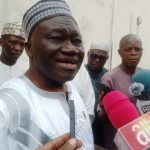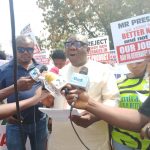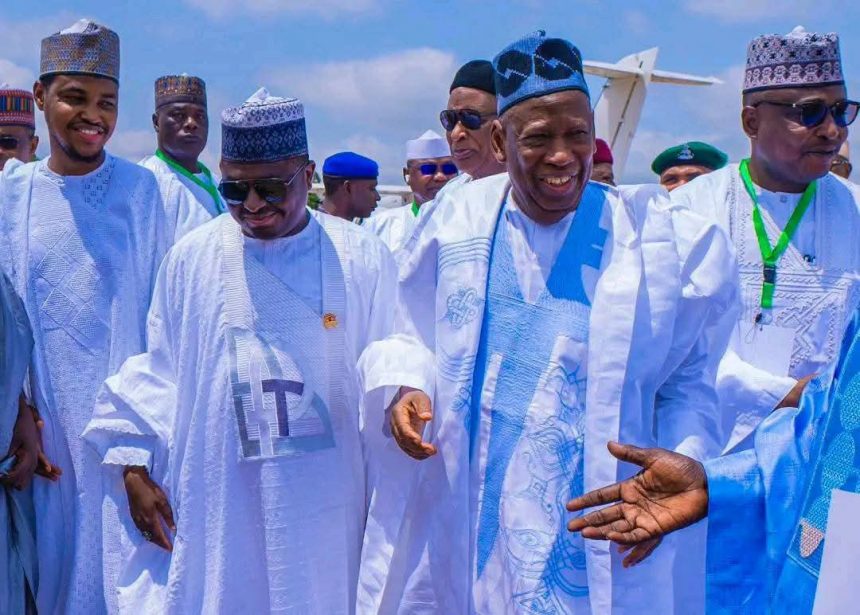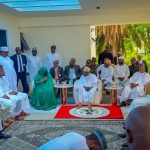Right to Reply: Abdullahi Ganduje’s Legacy of Development in Kano State
By Bala Salihu Dawakin Kudu
In the wake of recent remarks by Kano State Governor Abba Yusuf, who challenged his predecessor, Abdullahi Ganduje, to name four projects completed during his eight years in office, it is imperative to set the record straight and highlight the substantial infrastructural developments that marked the Ganduje administration.
Governor Abba Yusuf’s accusations regarding the depletion of the state treasury and the lack of meaningful projects have sparked heated debate. However, a closer look at the tangible legacy of the Ganduje era paints a very different picture — one of significant achievements and lasting impact on the people of Kano State.
Challenging the Narrative
At an event recently held to distribute permanent and pensionable job offers to 4,315 teachers under the Better Education Service Delivery for All (BESDA) program, Governor Yusuf accused the previous administration of oppression, selling job offers, and looting public funds. He further claimed that the Ganduje administration left an empty treasury and a negative balance of N9,075 at handover.
While financial transparency and accountability are essential in governance, it is equally important to recognize the developmental strides made during Ganduje’s tenure. Below are some of the notable projects that continue to benefit Kano residents and reflect the administration’s commitment to progress:
Four (and More) Key Projects Completed by the Ganduje Administration
1. Kofar Ruwa Underpass Bridge
One of the landmark infrastructural developments is the Kofar Ruwa underpass bridge, designed to ease traffic congestion in the bustling commercial center of Kano. This project has improved vehicular movement and boosted economic activities by reducing travel time for thousands of commuters daily.
2. NNPC Flyover at Hotoro Bypass
Another monumental achievement is the NNPC flyover at Hotoro bypass. This flyover significantly enhanced the flow of traffic between residential and industrial areas, reducing gridlocks and improving safety for motorists and pedestrians alike.
3. Flyover from Triumph to Yankaba at Sabon Gari Market
The flyover connecting Triumph to Yankaba at the heart of Sabon Gari market was completed to facilitate smoother trade and transportation within Kano’s busiest market district. This infrastructure has supported local businesses by providing easier access and reducing bottlenecks.
4. Renovation and Reconstruction of Schools
Beyond roads and bridges, the Ganduje administration embarked on extensive renovation and reconstruction of educational institutions across Kano State. These efforts included modernizing classrooms, improving learning environments, and reopening boarding schools to accommodate more students.
5. Street Lighting Projects
To enhance security and improve quality of life, numerous street lighting projects were executed, especially in urban areas. These installations have contributed to safer neighborhoods and extended productive hours for businesses and residents.
6. Healthcare and Agricultural Support
The administration also prioritized healthcare improvements and provided farming support to empower rural communities, thereby stimulating agricultural productivity and food security.
Responding to the Treasury Claims
While Governor Yusuf’s assertion of an empty treasury raises questions, it is important to note that financial management is complex and influenced by many factors, including inherited debts, national economic conditions, and fluctuating revenue streams. Nonetheless, the Ganduje government’s ability to initiate and complete large-scale projects despite financial challenges is commendable.
Conclusion: A Call for Constructive Dialogue
Governance is not just about criticism but about acknowledging past achievements and building upon them for future progress. The Ganduje administration’s legacy is evident in the roads paved, schools rebuilt, and communities uplifted.
Governor Yusuf’s challenge to identify completed projects is met with clear evidence of impactful infrastructure and social programs that have transformed Kano State. Rather than erasing these accomplishments, there is an opportunity to collaborate and ensure continued development for the benefit of all Kano citizens.
In the spirit of democracy and accountability, it is hoped that the discourse between past and present administrations will remain focused on constructive engagement and the shared goal of advancing Kano State.
Write by Bala Salihu Dawakin Kudu. email balasalihudawakinkudu@gmail.com












